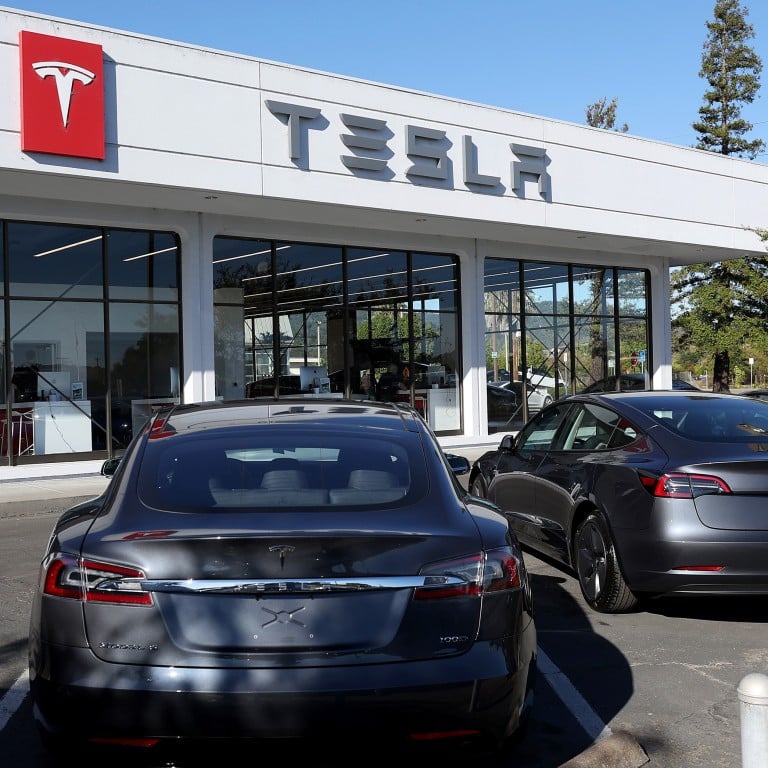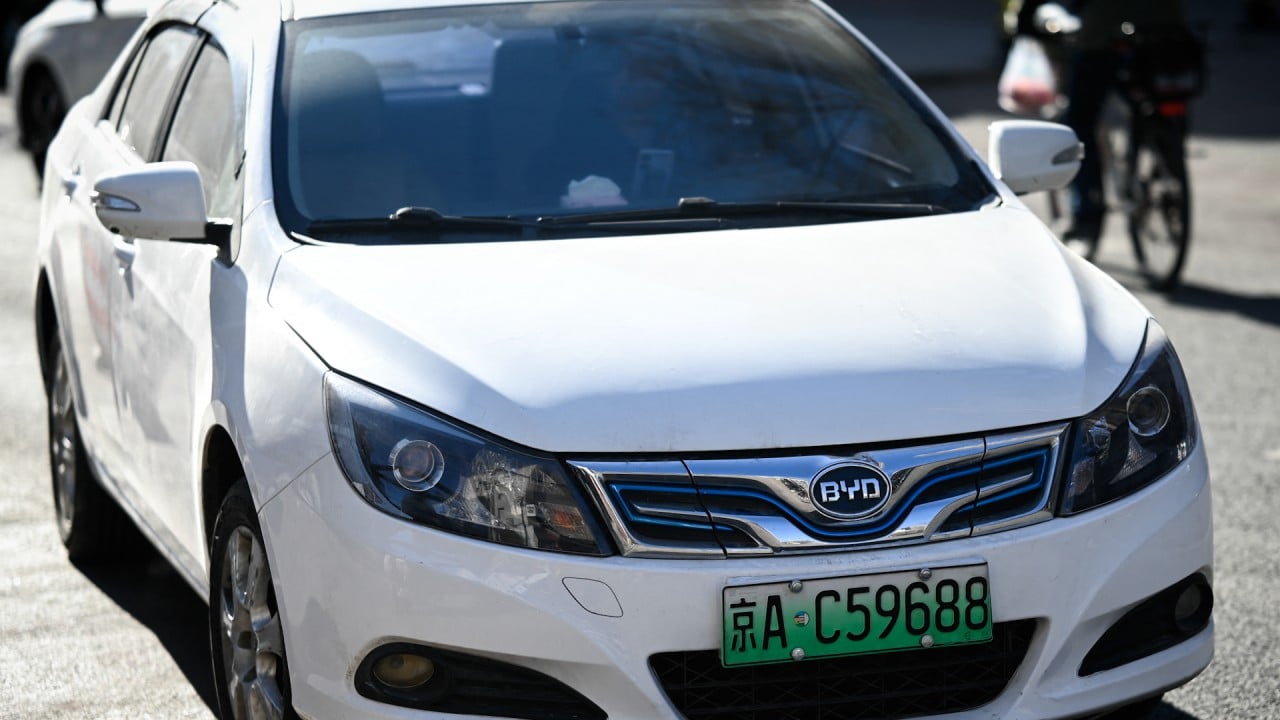
Tesla knocks BYD off its perch as world’s largest pure EV makers struggle to win new customers in China’s shrinking market
- Tesla’s global deliveries fell 20 per cent to 386,810 units in the first quarter, while BYD’s volume slumped 43 per cent to 300,114
- Aggressive price discounts in mainland China may help BYD restore its leadership in pure-electric car market, analyst says
Deliveries by the Austin, Texas-based company fell 20 per cent to 386,810 units worldwide in the first three months, according to a statement on Tuesday. However, that surpassed BYD’s deliveries, which tumbled 43 per cent to 300,114 units in the same period.
BYD, which counts Warren Buffett’s Berkshire Hathaway among its shareholders, only overtook the US company in the fourth quarter of last year.
“BYD suffered a big setback in the Chinese market as it faces stiff competition from emerging rivals such as Huawei’s Aito-branded cars,” said Gao Shen, an independent analyst in Shanghai. “Its recent price cuts will help the company bolster sales in the coming months at the expense of profitability.”
The battleground in mainland China, the single-largest EV market accounting for about 60 per cent of global sales, has been heating up in recent months as EV makers from BYD to Xpeng and Li Auto engage in a price war to snare increasingly selective and cautious buyers.
Sales of pure-electric cars in China rose 17.4 per cent to 597,000 units in the first two months this year, according to the latest available data compiled electric-car news site CnEVPost, compared with a 7.1 per cent pace in the same period in 2023. Sales rose 37 per cent in 2023, easing from a 96 per cent pace in 2022 and 168 per cent in 2021.
BYD sold 160,212 pure EV worldwide during the first two months of this year, 1 per cent lower than a year ago, with China dominating the volume. Its market share in China slipped to 26.8 per cent from 31.8 per cent over the same period.

Tesla’s position at the top may be fleeting as BYD goes on the offensive with price discounts, according to Tian Maowei, a sales manager at Yiyou Auto Service in Shanghai.
“Tesla, which sells one in every three cars in China, is also grappling with difficulties in sustaining growth here,” said Tian. “Given a slowing EV growth pace in developed markets, it is still likely to lose to BYD since the Chinese company is offering discounts to lure customers at home.”
The carmaker has slashed the prices of nearly all of its cars by 5 to 20 per cent since February 18, as growth in China showed signs of tapering off. In March, BYD delivered 139,902 pure electric cars globally, a 36 per cent increase from a year earlier.


